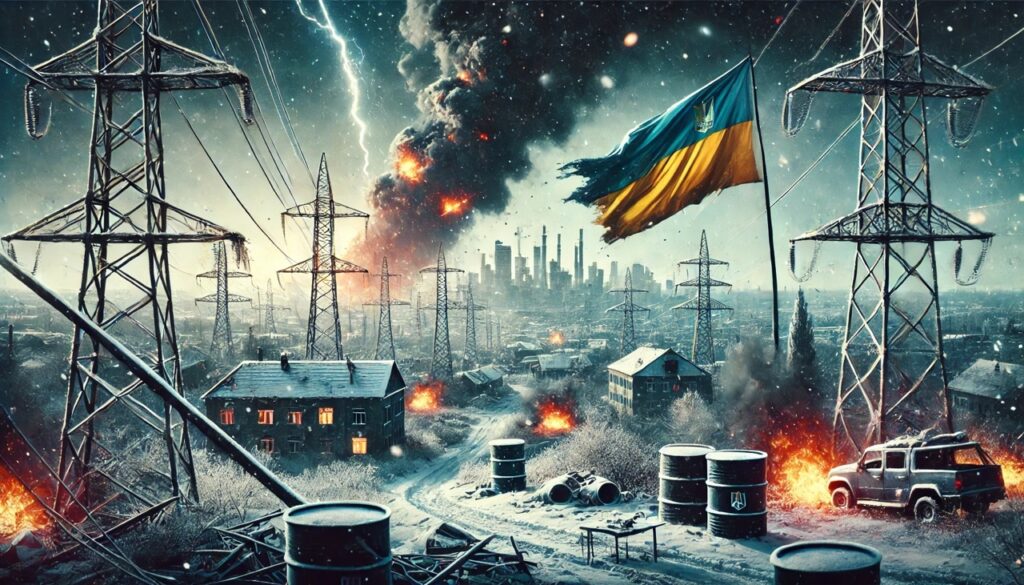Russia’s recent massive aerial assault on Ukraine’s energy infrastructure marks a grim chapter in an already devastating conflict. The deliberate targeting of critical facilities, including power grids and energy distribution systems, sends a clear message: this war extends beyond the battlefield. It’s a calculated attempt to break the spirit of the Ukrainian people during the harsh winter months.
Yet, amidst the darkness, Ukraine’s resilience shines brightly. The attacks may cause blackouts and disruptions, but they have not extinguished the country’s determination. Here’s a closer look at the implications of these assaults and the broader lessons for the global community.
The Impact of Targeting Energy Infrastructure
Weaponizing Winter
Destroying power grids during the onset of winter is a brutal tactic. Millions of Ukrainians now face the possibility of freezing temperatures without adequate heat or electricity. This approach not only creates immediate hardship but also undermines the country’s ability to rebuild its economy and maintain morale.
Civilians Pay the Price
The death toll from these attacks highlights their indiscriminate nature. Civilians far from active conflict zones, including children and the elderly, are among the casualties. The ripple effect on essential services—hospitals, schools, and water systems—exacerbates the humanitarian crisis.
Global Repercussions
Ukraine’s energy grid is not just a national concern. Europe’s interconnected energy markets mean that instability in Ukraine could lead to higher energy prices and shortages across the continent. NATO’s response, particularly Poland’s increased alert status, underscores the broader security risks these attacks pose.
The Role of the International Community
Diplomatic Challenges
Efforts like German Chancellor Olaf Scholz’s call to Putin illustrate the difficulty of balancing diplomacy with deterrence. While dialogue is essential, critics argue that it must be paired with stronger action to prevent further aggression.
Sustained Support
Ukraine’s ability to endure relies heavily on Western support, from military aid to rebuilding its energy infrastructure. Concerns about shifting U.S. foreign policy priorities, especially with potential political changes, highlight the fragility of this support.
Moral Imperative
The international community faces a moral test: to stand by Ukraine not just in words but through sustained, tangible assistance. The destruction of energy infrastructure is not just a Ukrainian issue—it’s a global reminder of the cost of unchecked aggression.
Resilience Amid Destruction
While the attacks are devastating, Ukraine’s spirit remains unbroken. Images of Ukrainian flags flying amid the rubble serve as powerful symbols of defiance. The country’s leadership continues to rally its people, emphasizing unity and the need for strength in the face of adversity.
Conclusion
The latest wave of attacks on Ukraine’s energy grid is a stark reminder of the war’s human and geopolitical toll. As winter looms, the resilience of the Ukrainian people and the resolve of their allies will be tested. It is essential that the global community not only condemns these actions but also acts decisively to support Ukraine through this crisis.
This war is not just about territorial gains or losses—it’s about the endurance of a nation and the principles of sovereignty and human rights. In the face of such aggression, solidarity with Ukraine is not just a choice; it’s a necessity.







